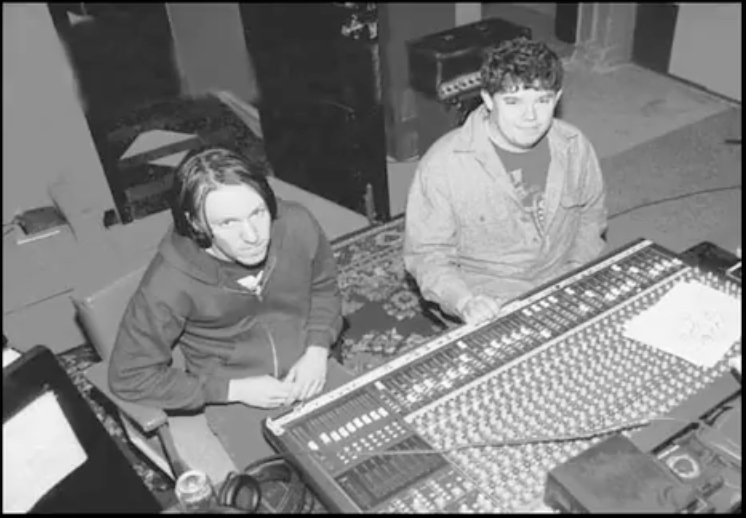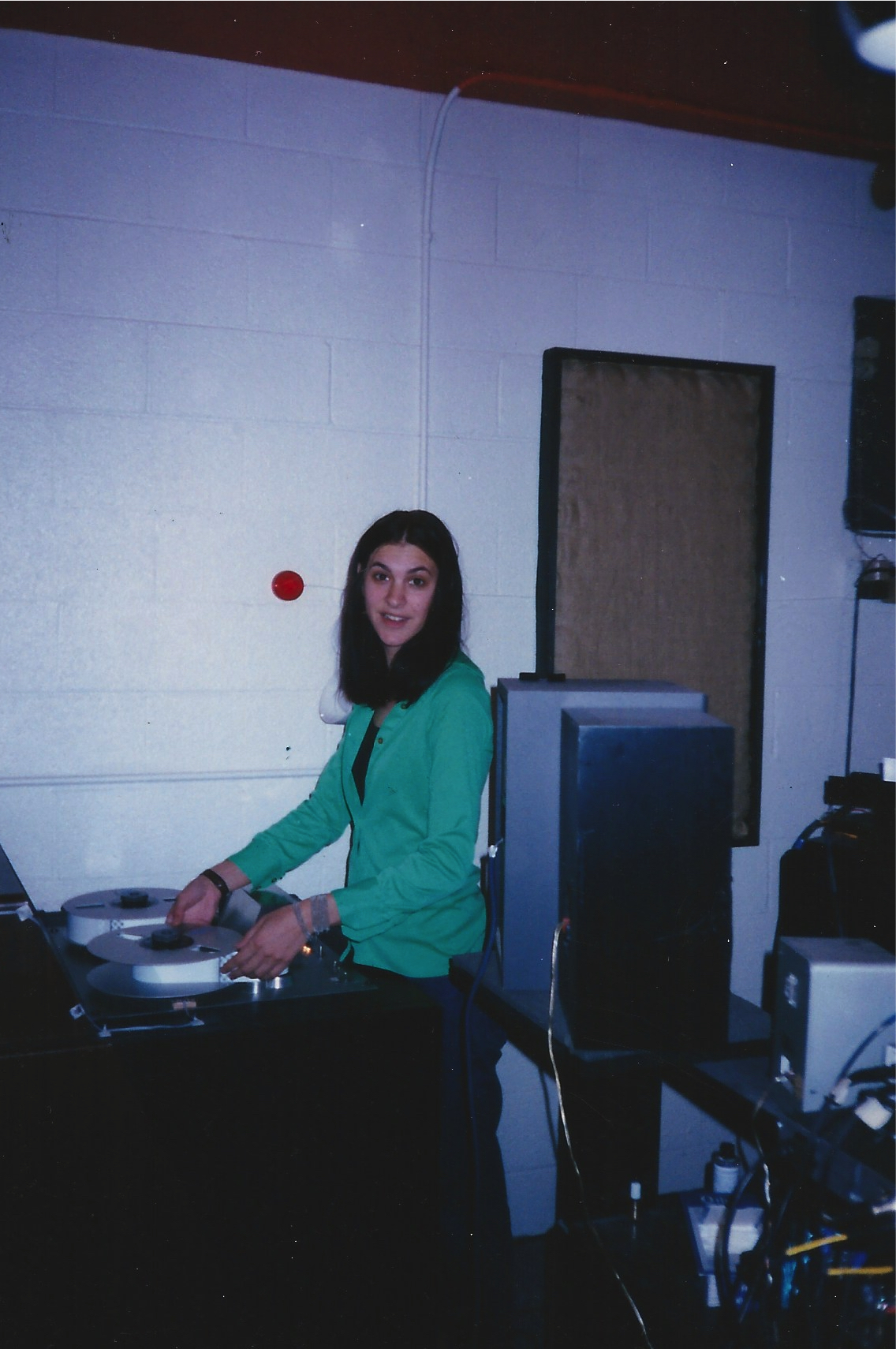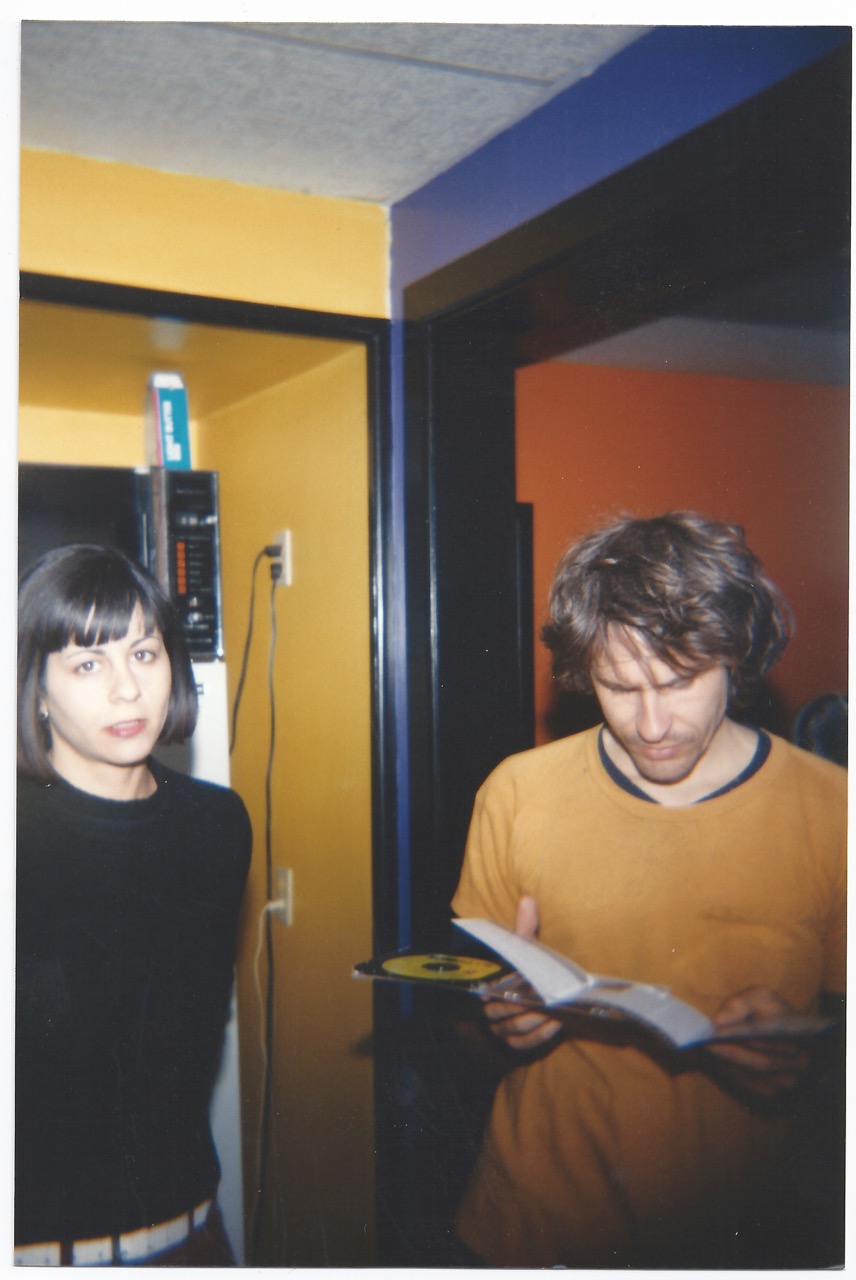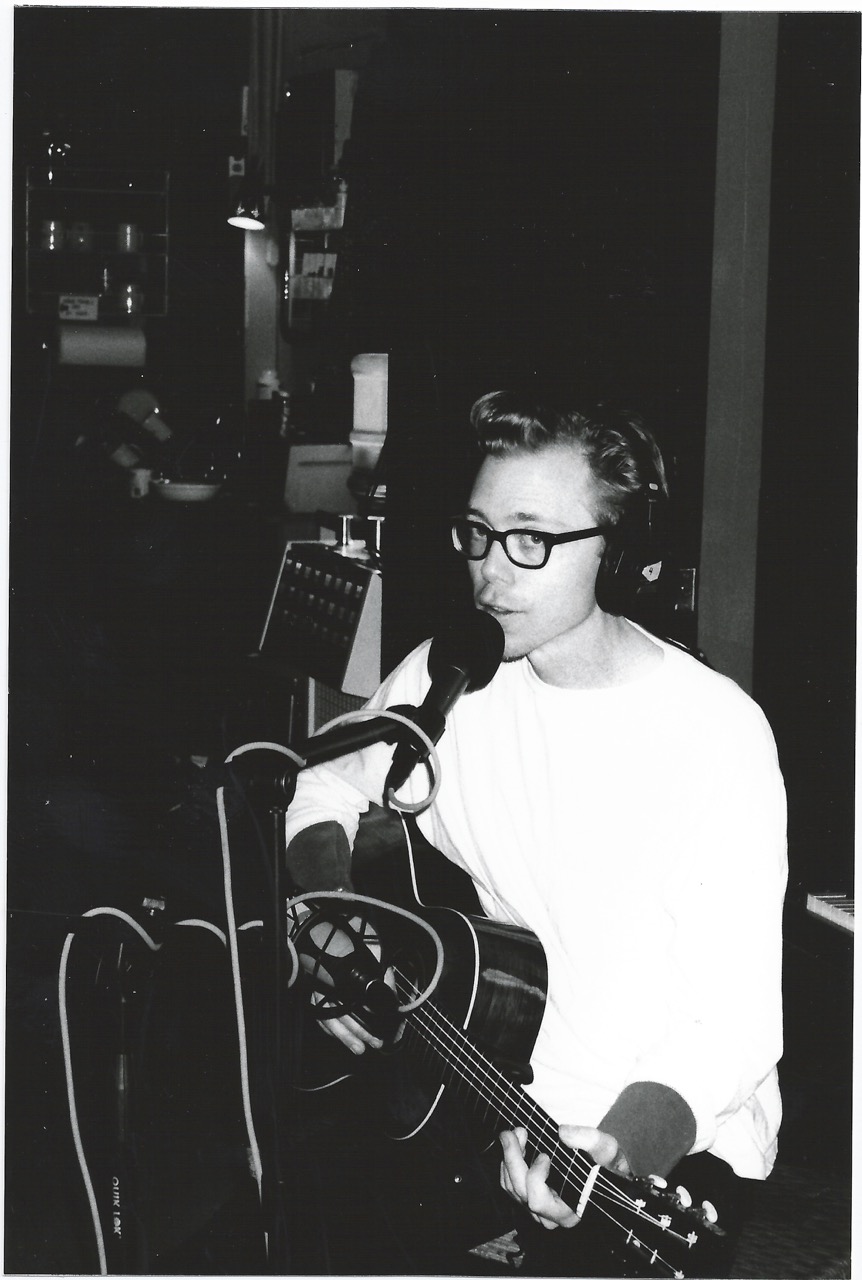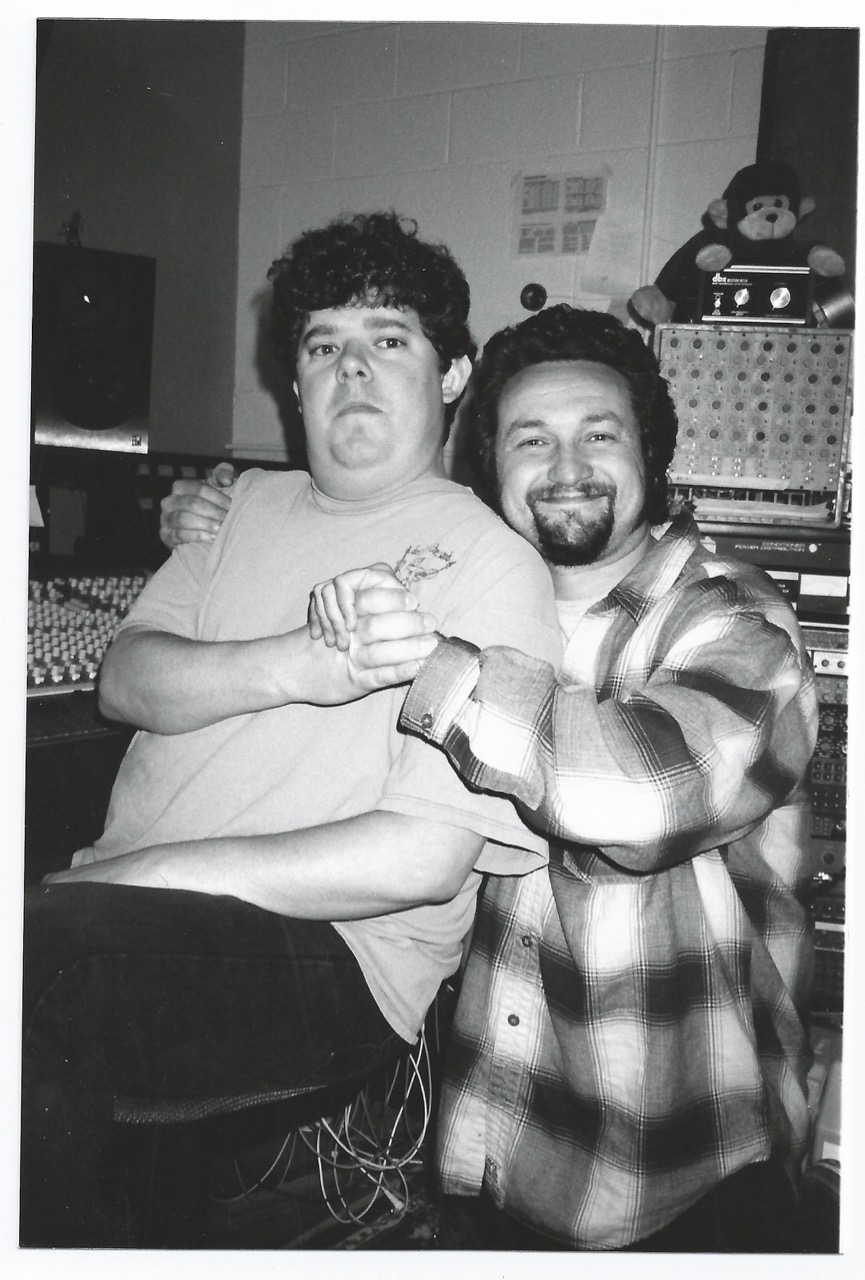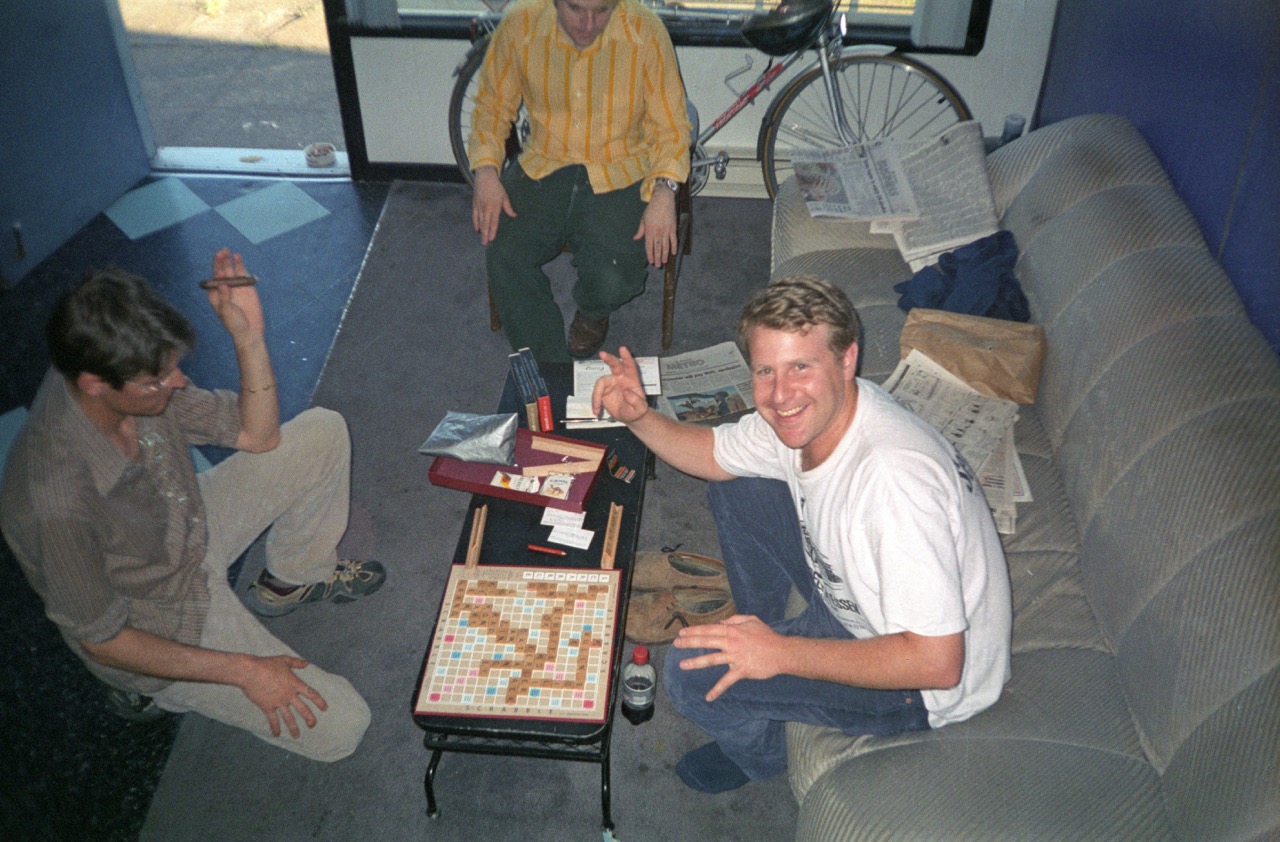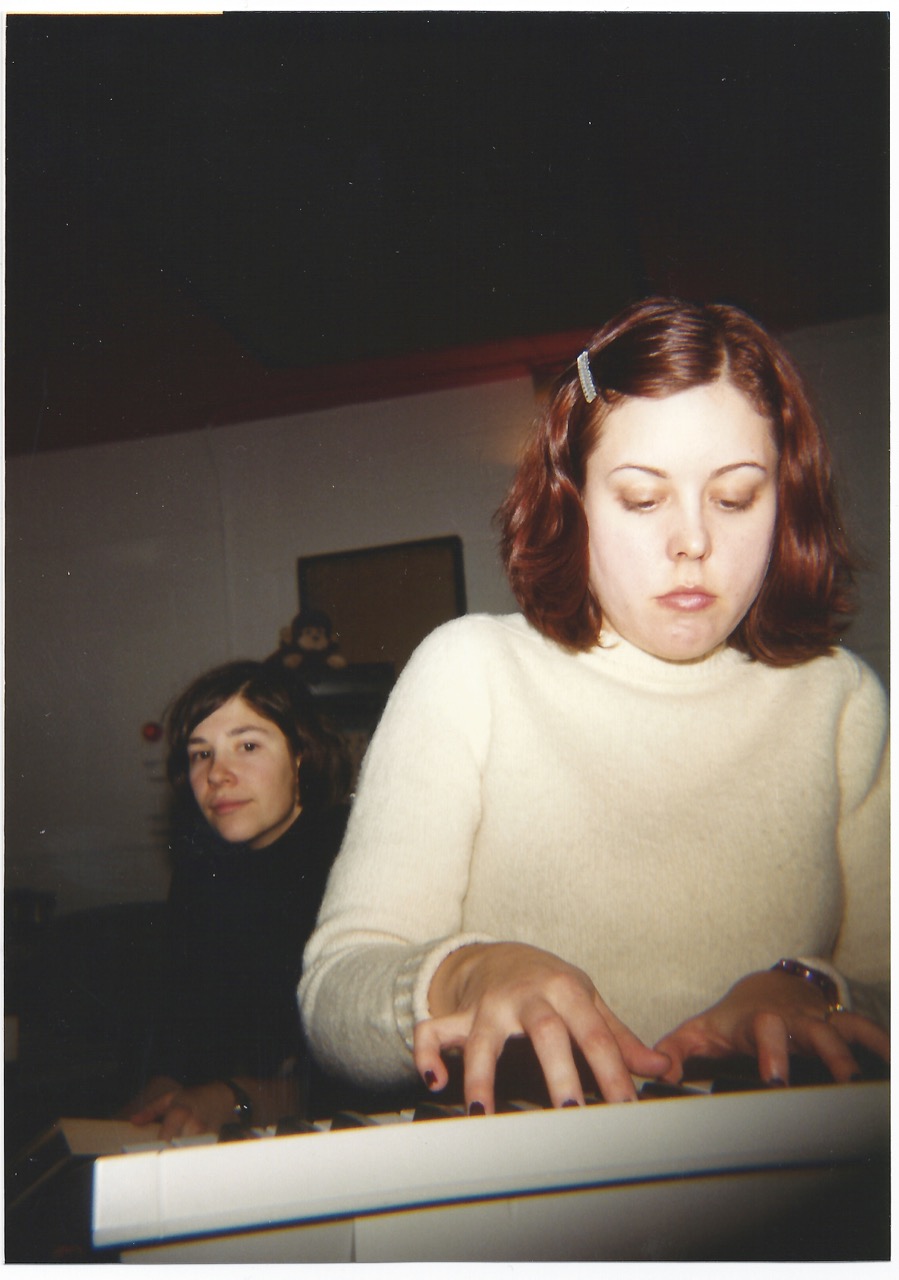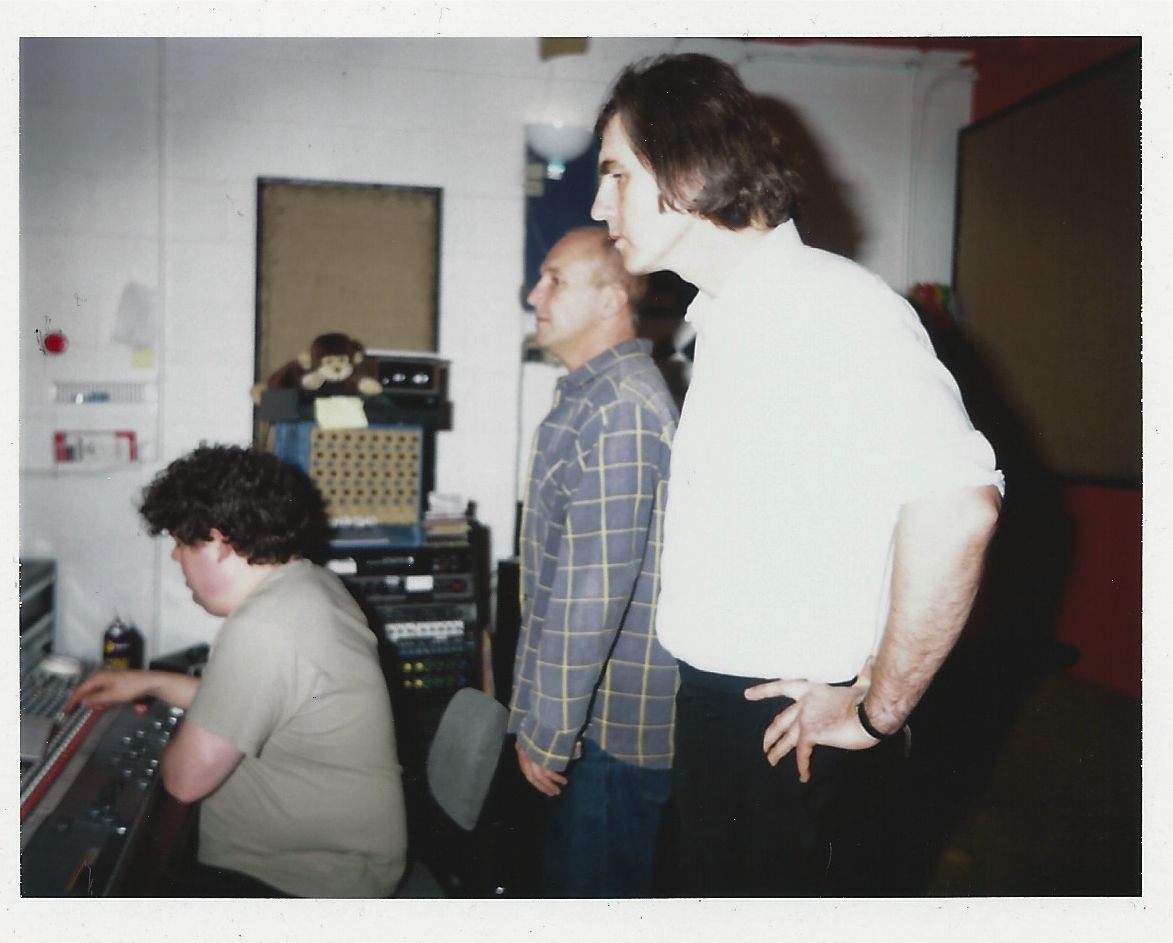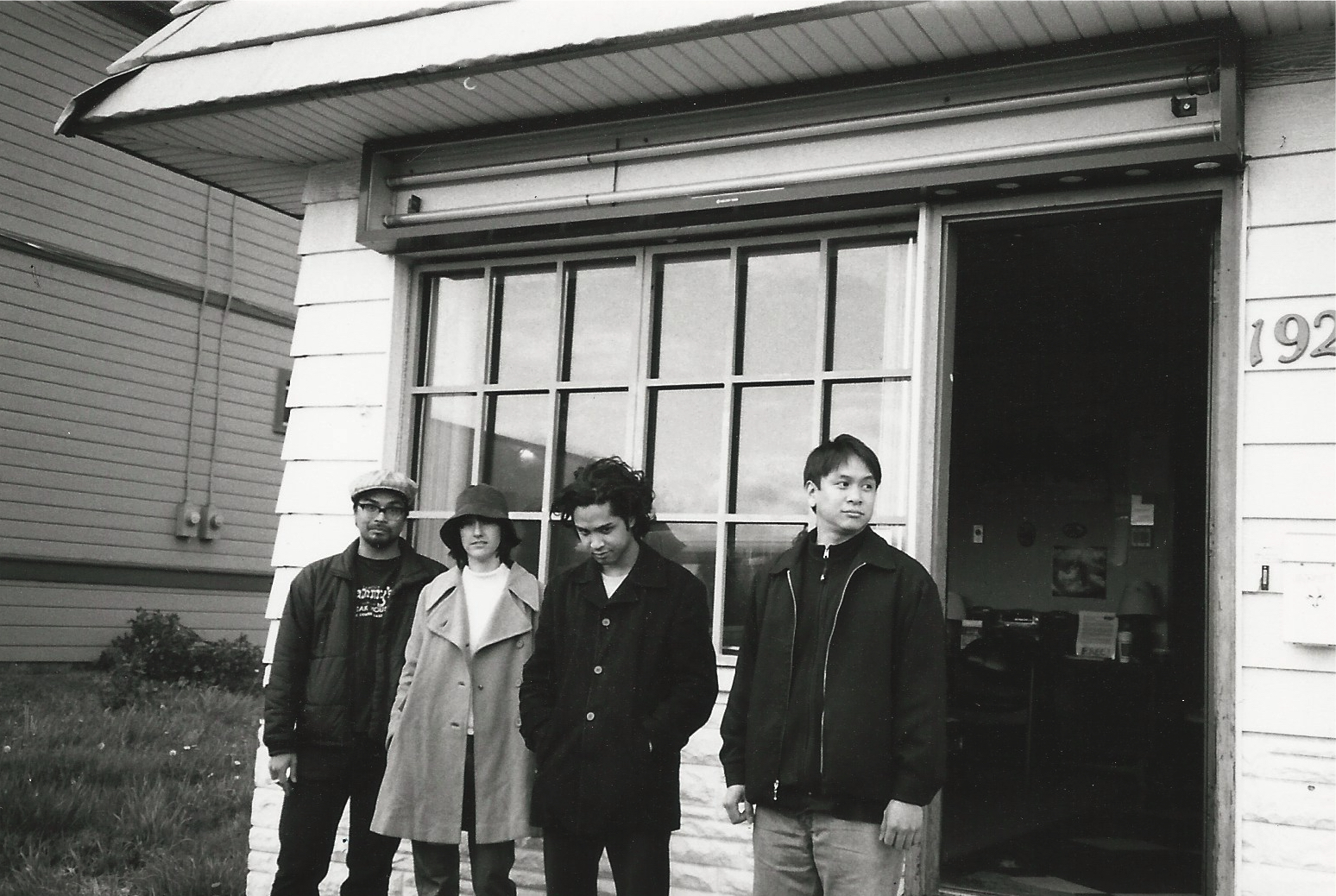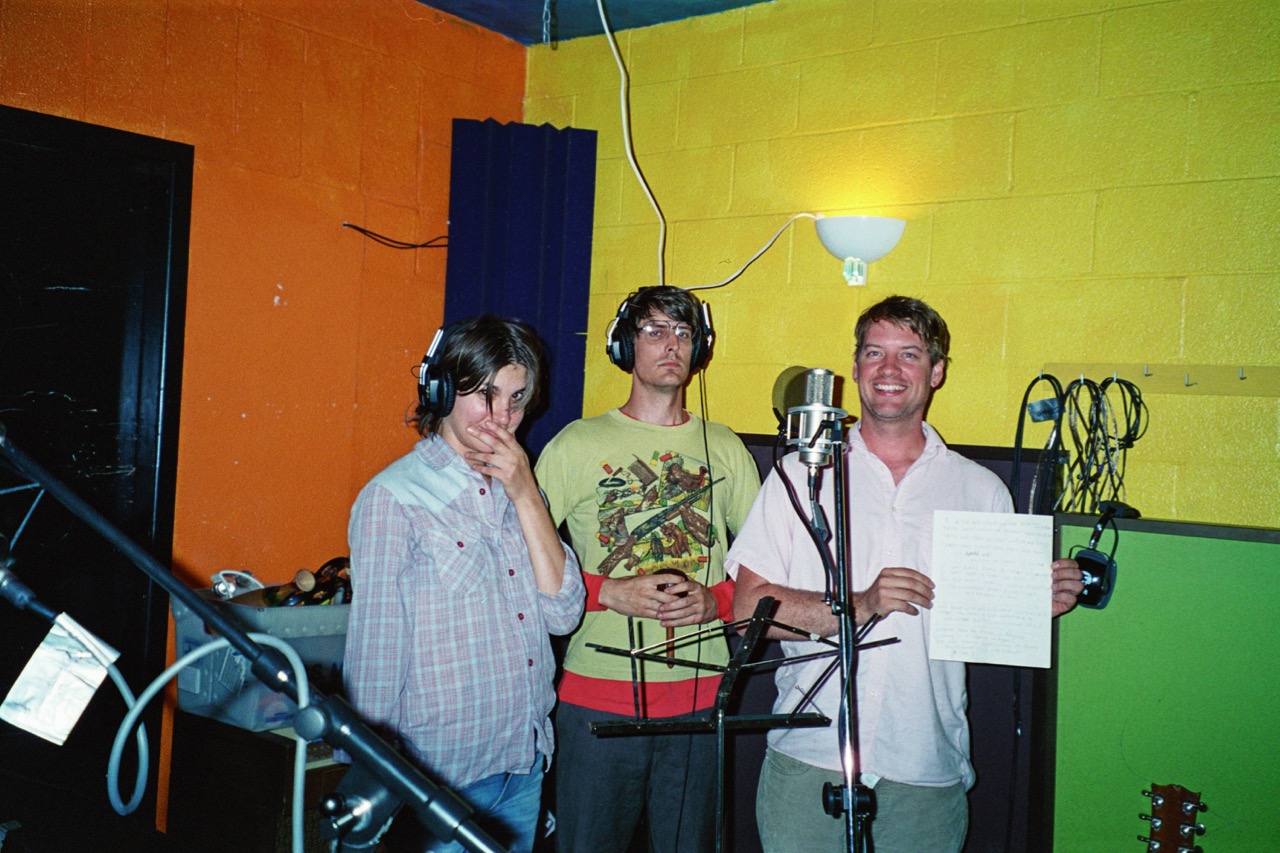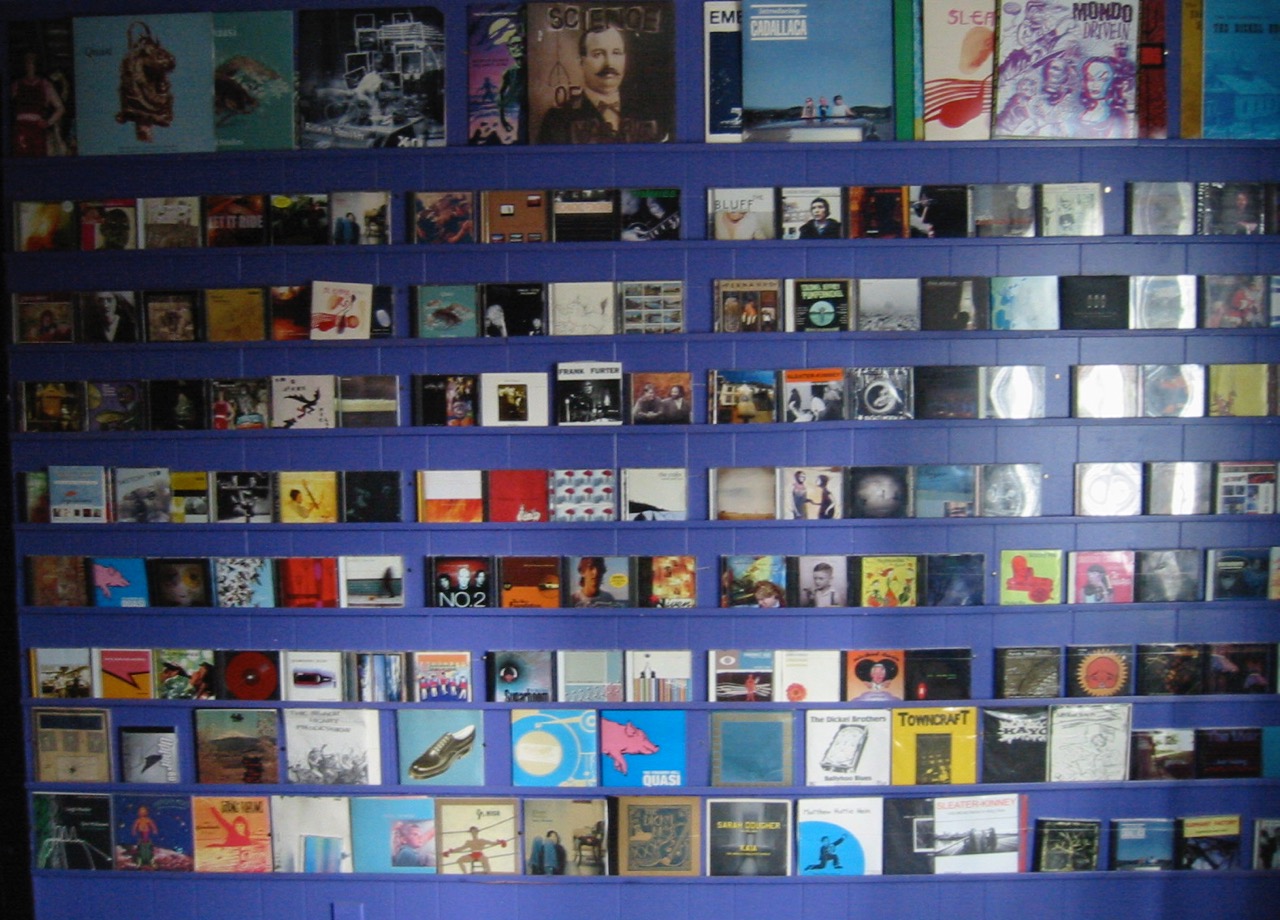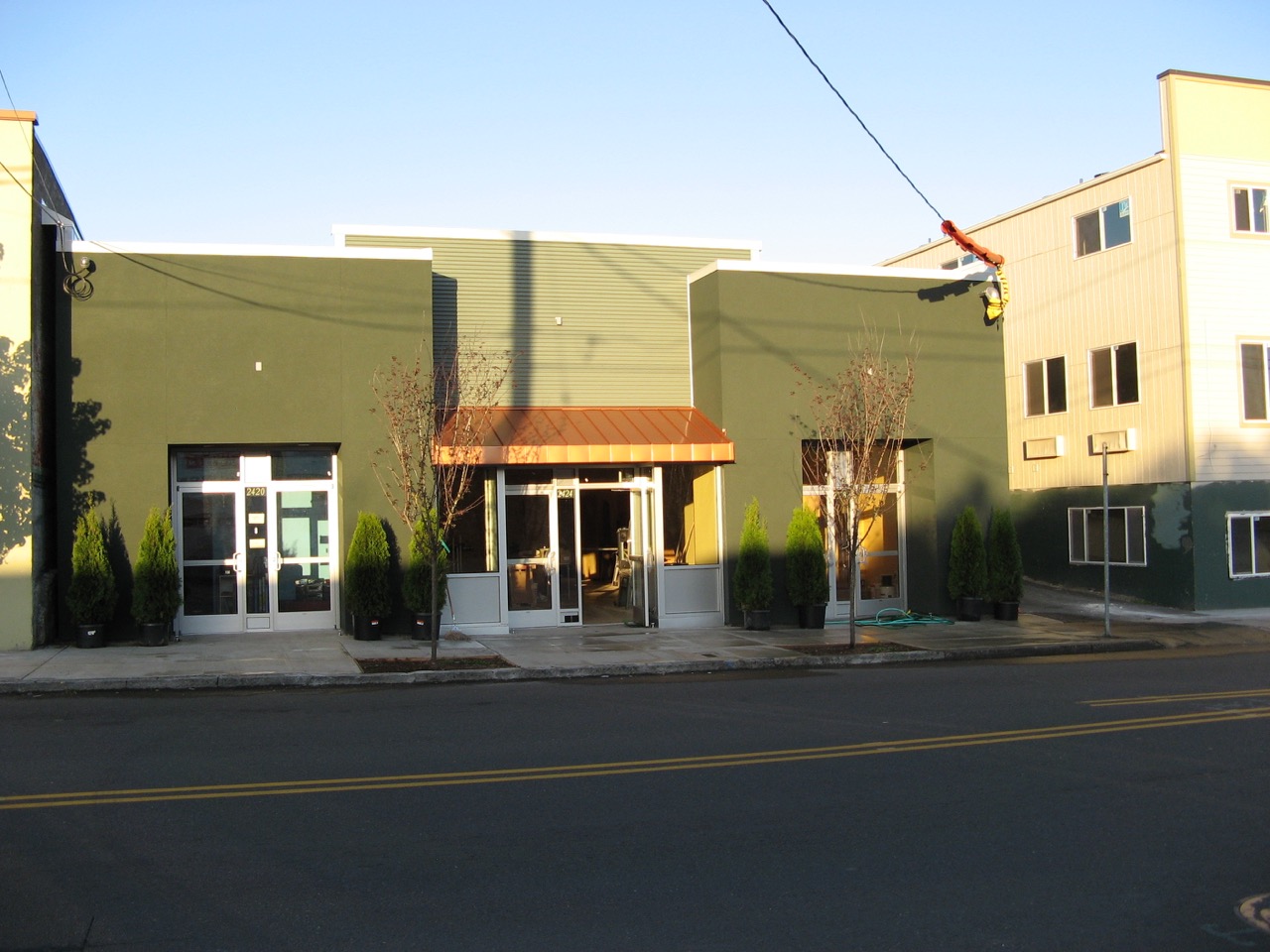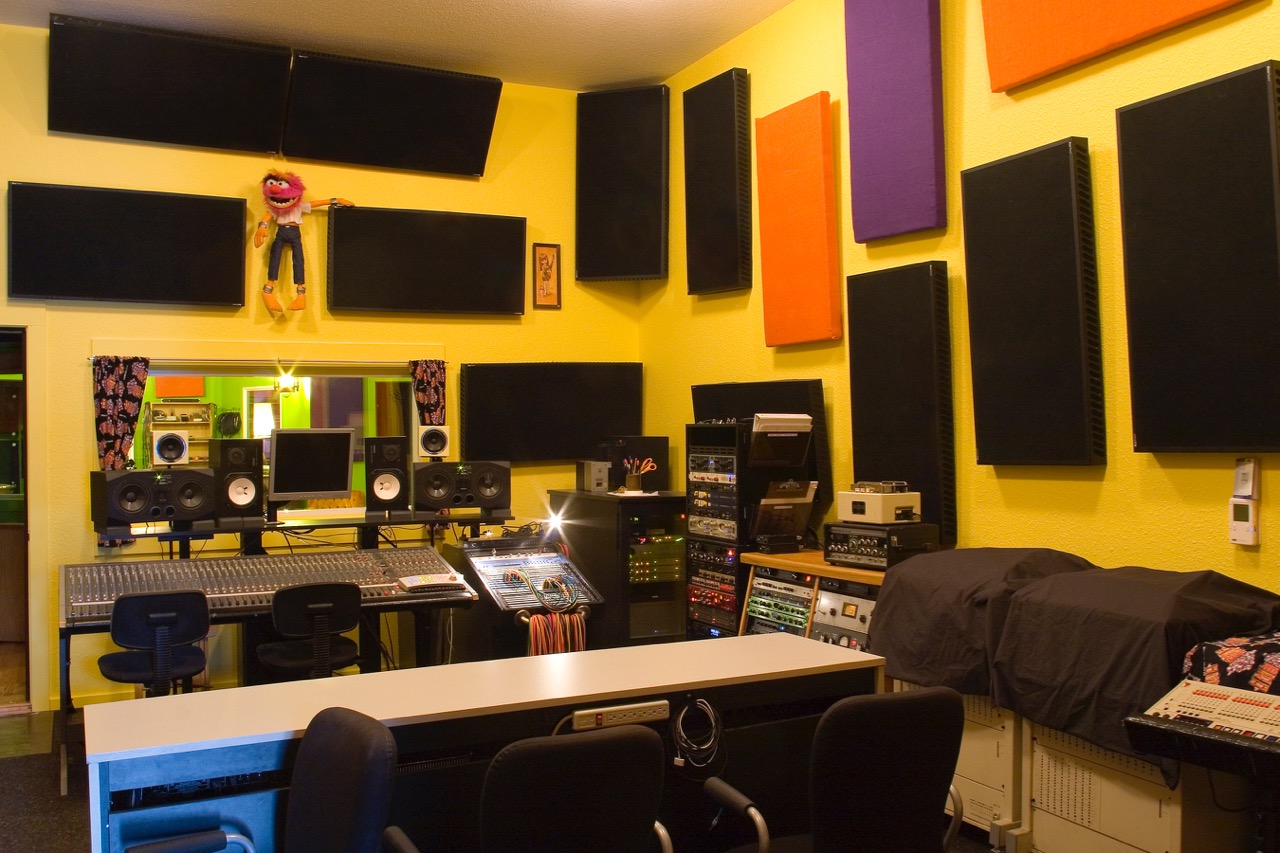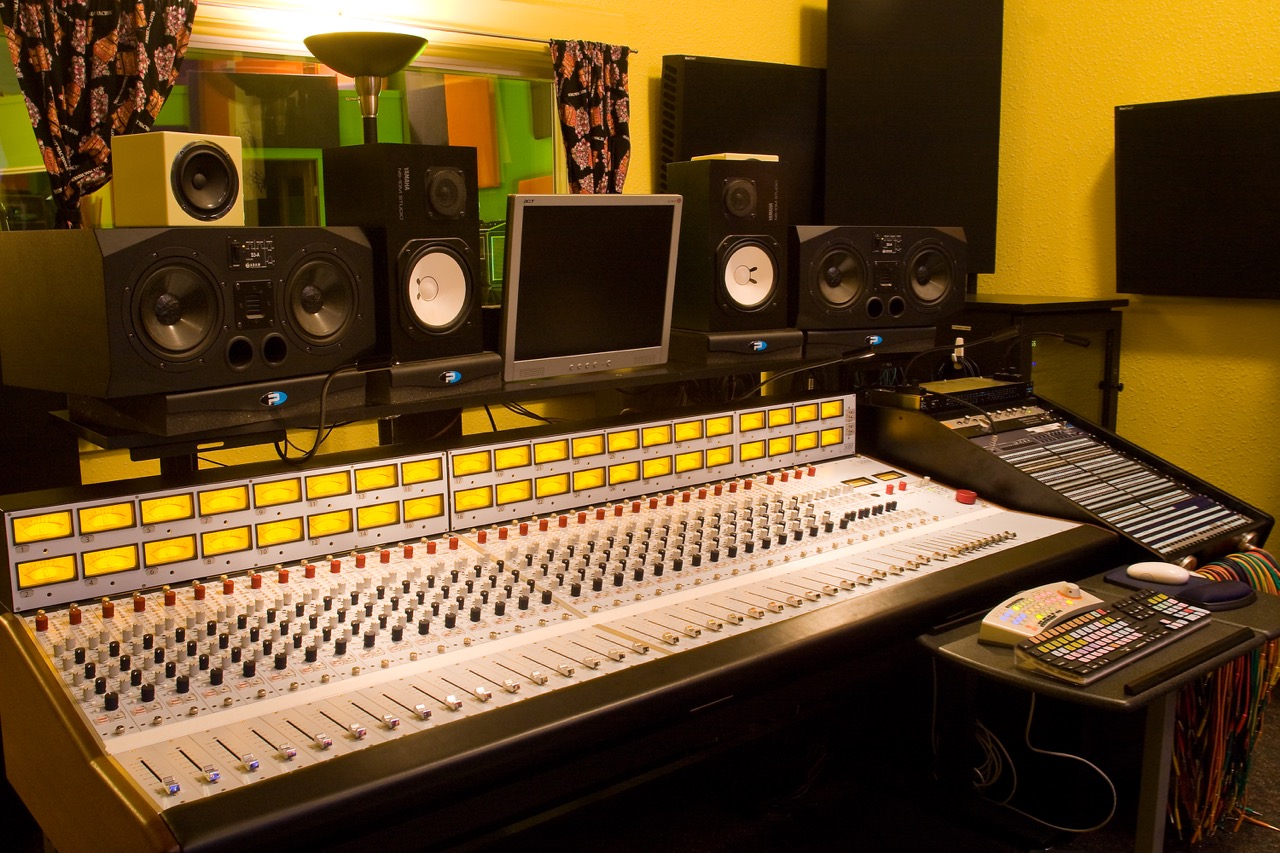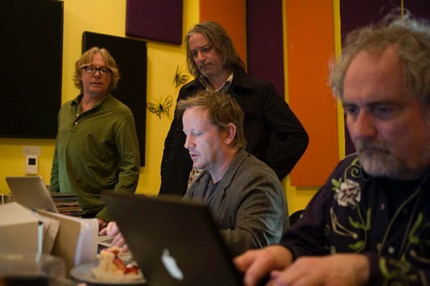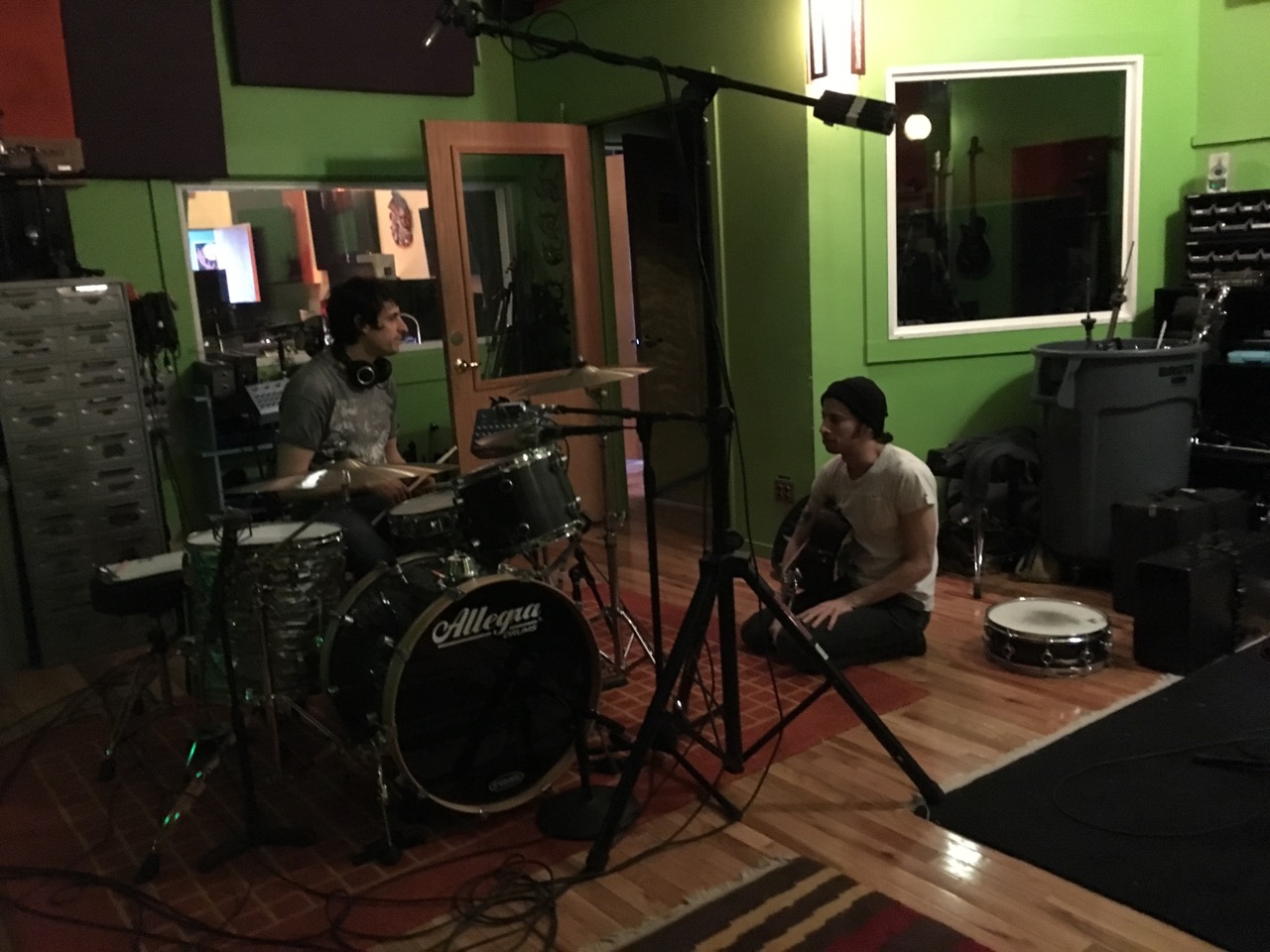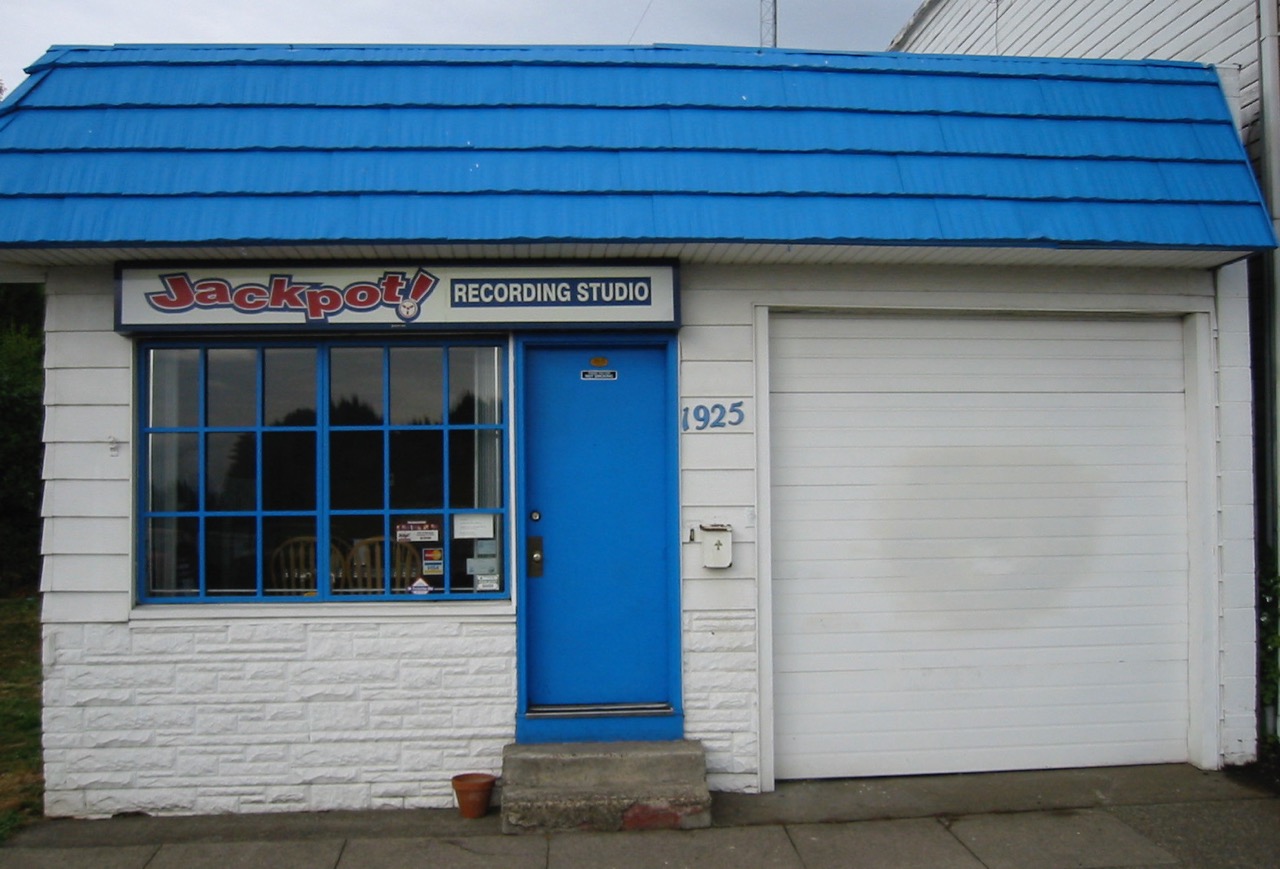
In 1996 Larry Crane began thinking about moving his home studio, Laundry Rules Recording, out of his SE Portland basement and into a commercial space. After a mutual friend noticed that songwriter Elliott Smith was also about to open a 16-track studio to work out of, the two met and decided to collaborate on a space, one that would be owned by Crane and that Smith could work out of. After a few weeks of driving all over Portland looking at spaces, they found this little white and blue shop at 1925 SE Morrison in January 1997 for $500 a month.
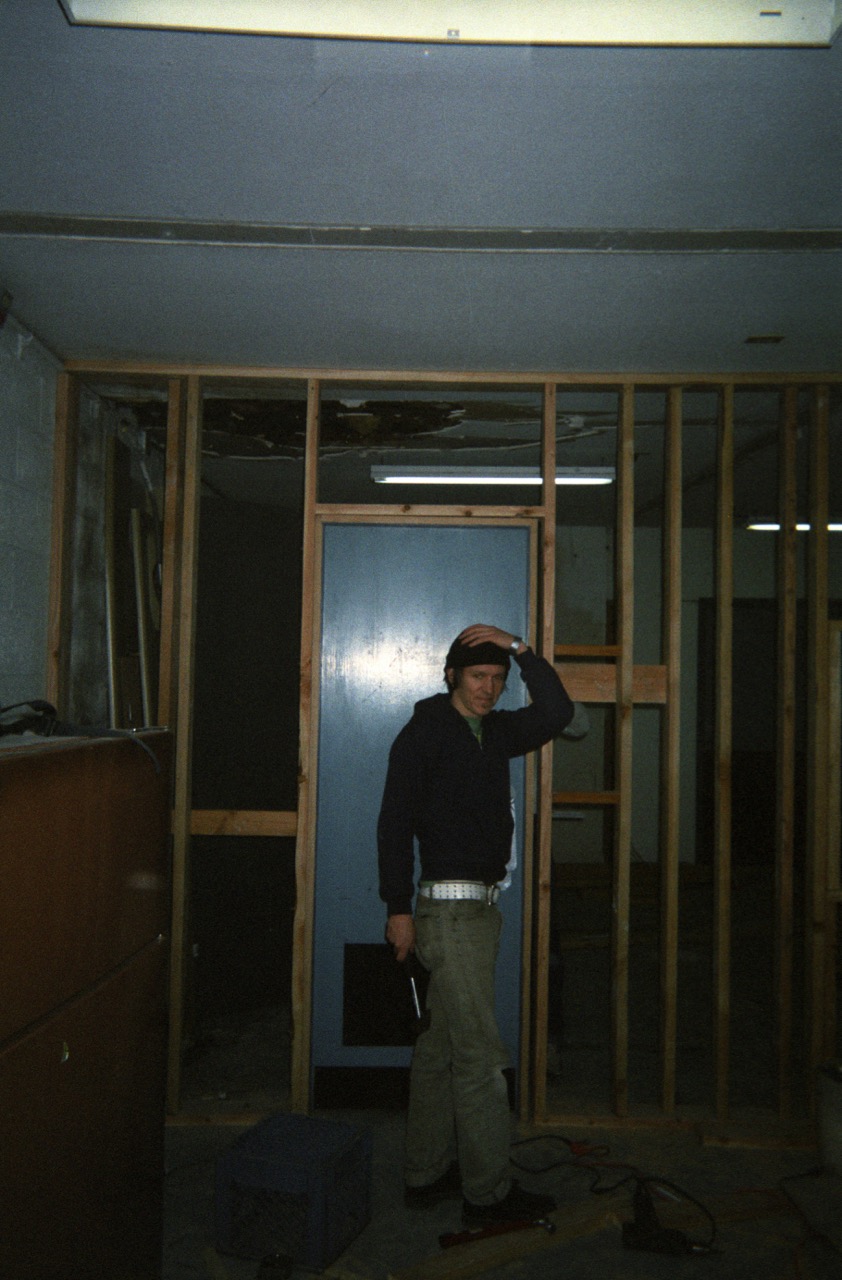 A wall was built to divide the main space into a live room and control room. Elliott was a master mud and tape craftsman, and many local musicians dropped in to trade work for future recording time.
A wall was built to divide the main space into a live room and control room. Elliott was a master mud and tape craftsman, and many local musicians dropped in to trade work for future recording time.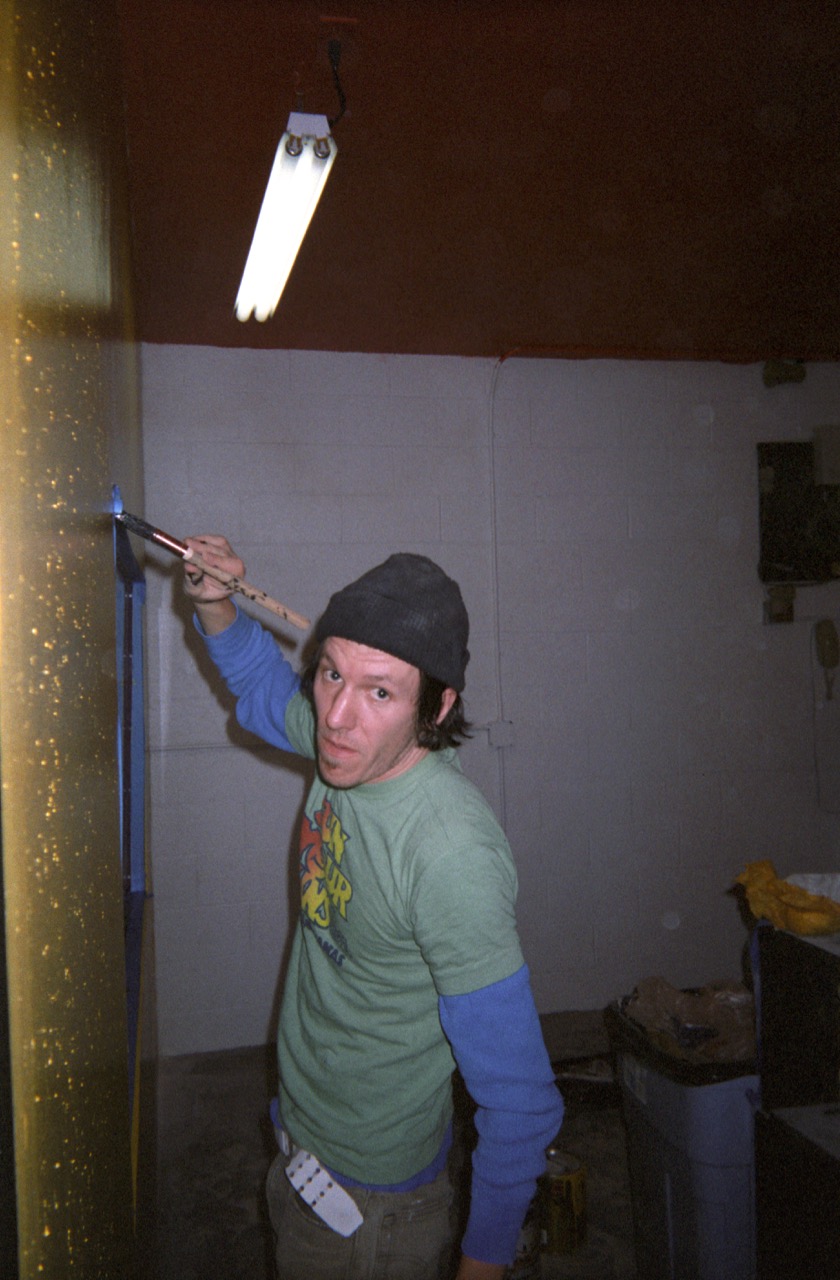
Some vibrant colors were chosen – a legacy that continues to this day.
Larry purchased an ancient MCI JH-16 tape deck from a studio in Greensboro, NC, and after door frames were removed it rolled right into the studio.
Larry and his new tape deck. This tape deck would alternate between capturing some excellent recordings and suffering harrowing breakdowns.
Elliott and Larry at the Mackie 32×8 console in 1997. This console was used to track Elliott’s “Miss Misery”, which made it into the film Good Will Hunting and was nominated for an Oscar in 1998. Celine Dion won with the Titanic song, of course.
Elliott’s “Baby Britain” from the album XO was initially tracked by Joanna Bolme at Jackpot! on this piano he’d bought especially for the studio. This shot is from the actual tracking date in 1997.
Jackpot!’s first intern and staff engineer was Joanna Bolme, who assisted and recorded Elliott Smith, worked with Larry Crane on many albums and helmed a few of the early sessions as well.
Larry and Elliott’s friends Quasi entered the studio in 1997 to record “Featuring ‘Birds’” and, later, “Field Studies” in 1998. Both albums are considered classics from this amazing duo.
Pete Krebs returned to Jackpot! over the years for many sessions, but 1999’s “Sweet Ona Rose” was well received, highlighted his excellent songwriting, and featured Ben Shepherd (Soundgarden) and John Moen (Decemberists, Maroons, Jicks).
Local legend Fernando cut his classic “Old Man Motel” at Jackpot in 1999, as well as many other projects over the years. Here he and Larry bond like brothers.
Indie rock’s favorite sons, Pavement, had long been friends of the Jackpot! crew, and in 1999 convened in Portland to start learning songs for their final album, “Terror Twilight”. No keeper recordings magically appeared, as this was mainly rehearsals, but lots of Scrabble and Burgerville runs did take place.
Sleater-Kinney tracked their “All Hands on the Bad One” and “One Beat” albums at Jackpot! with John Goodmanson producing and Larry Crane engineering in 1999 and 2002. Here’s Corin Tucker laying down a rare keyboard part while Carrie Brownstein looks on!
After meeting Larry Crane through Tape Op, and meeting Sleater-Kinney at a gig, Grant McLennan and Robert Forster came to Jackpot! in February 2000 to record the Go-Betweens’ comeback album, “The Friends of Rachel Worth.” Janet Weiss played drums and Adele Pickvance came over from Australia to lay down bass. The rest of Quasi and Sleater-Kinney guest starred and some fun karaoke nights occurred. Here’s Larry, Grant, and Robert listening back to some great songs.
Many bands had connections to Larry Crane, Elliott Smith, Tape Op, and Jackpot! and would drop in while on tour, including the fine folks of New York’s Versus, who tracked the basics for one of the songs for 2000’s “Hurrah” at the studio.
After Pavement called it quits, Stephen Malkmus recruited Joanna Bolme to play bass and long time Jackpot! supporter John Moen to play drums for his band, The Jicks. They’d soon add Mike Clark, a veteran of many Jackpot! and Laundry Rules sessions. Here are Joanna, Steve, and John about to lay down vocals on “Us” from the album Pig Lib.
Here’s the CD Wall from the original location of Jackpot! Many of Portland’s best bands have tracked here over the years, and, even 10 years in, there were more releases out than could be displayed.
Around 2006, Jackpot! got notice that the lot they were on would be sold and we and our patient neighbors at Rex Recording began looking for new digs. Eventually condos or apartments were built on the site, just like all over Portland.
The fine folks at Hamptone (makers of excellent audio gear) were about to build a new shop on an abandoned lot, and offered to build a new space for Jackpot! in 2007. In June of that year, after months of construction and installation, we all moved in.
The new control room is at least three times bigger than the original studio on Morrison, and the live room is much larger as well. Plus, the ceilings are nearly 12 feet high.
In 2009, Jackpot! installed a brand new, custom ordered, Rupert Neve Designs 5088 console.
In 2009, R.E.M. members Peter Buck and Mike Mills laid down instrumental demos for what would become their final album, “Collapse Into Now,” with Tucker Martine engineering and Jackknife Lee producing. Here’s Mike, Peter, Jackknife, and sideman Scott McCaughey
Jackpot! Recording Studio continues to feature some of the best sessions in town. Here’s longtime studio regular, Paul Pulvirenti, drumming on an album for Israel’s The Secret Sea in 2016.
MORE ABOUT JACKPOT!


